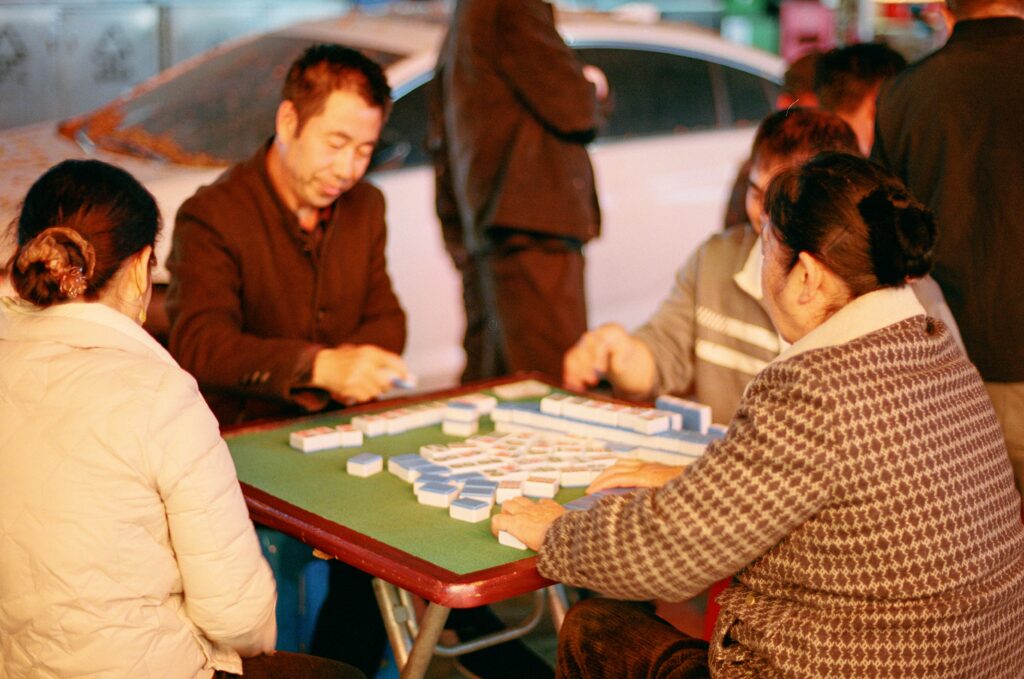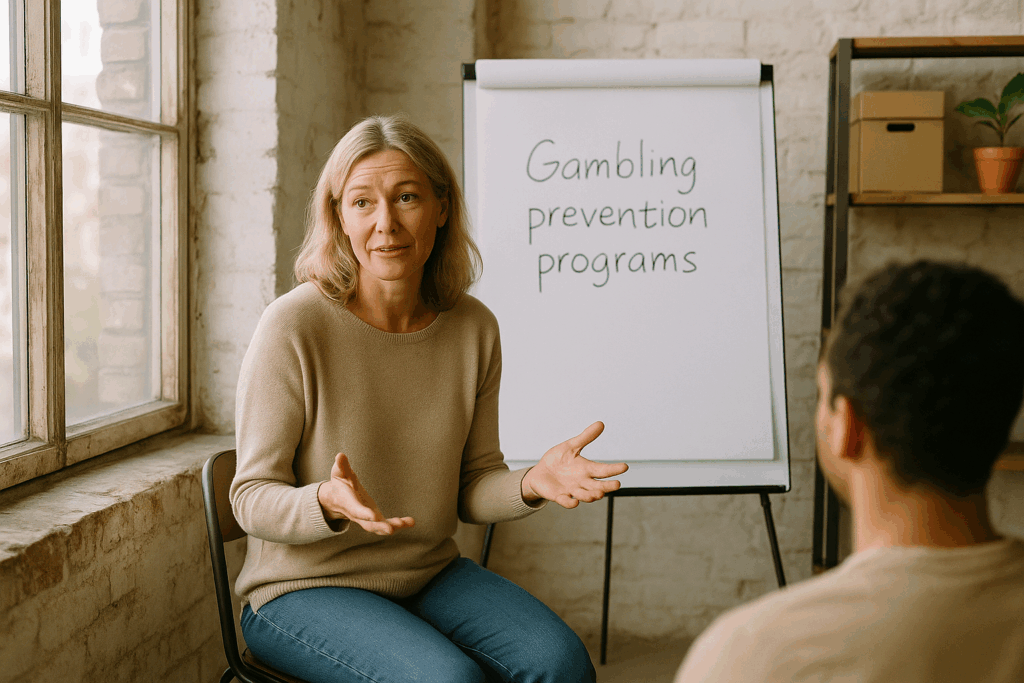Understanding the Impact
Problem gambling doesn’t tap you on the shoulder—it creeps in, slow and quiet. For individuals, the highs can be addictive and the lows brutal. What starts as entertainment can quickly spiral into compulsion. Missed rent, maxed-out cards, hiding losses—it builds. Shame follows, and so does denial, making it harder to stop.
But it’s not a solo crash. Families get dragged along. Loved ones often feel powerless watching someone they care about self-destruct financially and emotionally. Trust thins out. Arguments replace conversations. Bills pile up, and patience thins.
Isolation just adds fuel. When gamblers hide their behavior, they also cut themselves off from support. That silence creates a loop—more gambling to escape the stress, more isolation as the damage grows. It’s a cycle that thrives in the dark.
Bringing it into the open isn’t weakness—it’s the only way things start to shift.
Core Support Systems That Make a Difference
Family and Friends
One of the biggest turning points in recovery often starts at home. For someone dealing with problem gambling, knowing they’re not being judged makes it a lot easier to ask for help. Family and close friends can be the first line of defense—but only if they provide steady support without sliding into blame or shame. That means listening more, lecturing less.
Clear boundaries are also non-negotiable. Support doesn’t mean enabling. Loved ones can hold gamblers accountable by refusing to cover debts or ignore lies, while still offering a safe place to land. It’s a tightrope, but one that matters.
Peer Support Groups
Gamblers Anonymous (GA) and Gam-Anon give people a way to connect with others who’ve been there. GA is for those struggling with gambling themselves; Gam-Anon is designed for their families and partners. Both offer structure, shared experience, and the simple but powerful feeling of not being alone.
Some prefer sitting in a room, face to face. Others opt for online forums or Zoom meetings. Both work—as long as people keep showing up and speaking honestly. Consistency, again, is key.
Professional Help
Good intentions can only go so far. That’s where therapists trained in addiction and behavioral health step in. They can cut through the surface and help gamblers understand the root of their habits—often tied to stress, trauma, or other mental health issues.
Then there’s the money side. Gambling-related debt doesn’t fix itself. Financial counselors can help map out a recovery plan, including budgeting, debt consolidation, and rebuilding credit. Therapy deals with the why. Financial help deals with the wreckage. Both are needed.
Together, these support systems form a foundation. No one has to go it alone. And recovery—while never simple—is always possible.
Tools for Building a Healthier Routine
When it comes to managing problem gambling, structure beats willpower. One of the first practical steps is locking yourself out—literally. Self-exclusion programs let individuals voluntarily bar themselves from casinos, betting apps, and online gambling platforms. Tools like GAMSTOP in the UK or software like BetBlocker and Gamban make it harder to relapse with a few clicks. They aren’t foolproof, but they raise the friction—and that matters when urges hit hard.
Real-time support matters too. Helplines like the National Problem Gambling Helpline (available 24/7 in many countries) and chat services linked to reputable recovery organizations connect people with trained professionals in the moment they need it most. Some apps go even further, offering check-in prompts, mood tracking, and custom alerts to flag risky behavior before it snowballs.
Then there’s the underrated power of planning. A loose schedule leaves room for temptation. Filling your day with structure—basic things like meal prep, workouts, and social time—can reduce boredom and emotional triggers. It’s not about overloading your calendar. It’s about replacing chaos with rhythm.
Each of these tools is a layer of defense. Alone, none are perfect. Together, they create space to breathe—and to build real change.
Helping Loved Ones Help Themselves
When it comes to problem gambling, ignorance isn’t neutral—it’s dangerous. Education is where support starts. Learn the early signs: unexplained absences, sudden financial issues, unusual mood swings, secrecy around online activity. The sooner you spot the pattern, the sooner you can respond in a way that actually helps.
But confronting someone isn’t about dropping ultimatums or venting frustration. It’s about timing, tone, and truth. Choose a quiet moment. Be clear but calm. Avoid shame. Stick to facts and how their behavior impacts you and others. Keep the door open, not slammed shut.
One of the hardest lines to walk is between support and enabling. Covering debt, making excuses, or pretending it’s not happening just delays the crash. Instead, focus on empathy without rescue. Offer resources, accountability, and a steady presence—but let them carry their side of the weight. That’s what real care looks like.
Connecting With Broader Resources
Problem gambling rarely exists in a vacuum, and the web of support needs to stretch beyond just friends and therapists. Community centers, local clinics, and nonprofit organizations are often first-line resources. These boots-on-the-ground programs don’t just offer pamphlets—they offer people. Trained staff who understand addiction, support groups that meet weekly, and workshops that actually clear a path forward, not just talk circles.
Workplace assistance programs, or EAPs, are another often overlooked asset. Many employees don’t realize their job benefits may include confidential access to counseling or referrals related to gambling problems. That’s a free, private entry point for help—and it’s already built into the system.
For some, faith-based or cultural organizations provide a more comfortable space to step forward. Whether it’s a trusted spiritual advisor or a cultural group that anchors identity, these support systems can balance accountability with compassion. The big win here isn’t just recovery—it’s finding help in places that feel safe, familiar, and judgment-free.
Prevention and Early Intervention
The best way to deal with problem gambling is to stop it before it starts. That means shifting the focus to prevention—talking openly about what safe gambling looks like and giving people the tools they need to stay in the clear. This isn’t just about gamblers; it’s about families, too.
Start with boundaries. Budgeting isn’t exciting, but it’s effective. Set firm spending and time limits before money ever leaves a wallet. Keep gambling funds separate from bills and groceries. Treat the activity like entertainment—not investment.
Families can play a big role here. Teach kids and teens the difference between games of chance and skill. Model healthy attitudes about risk and reward. Talk about odds, wins, losses, and the reality that the house always has the edge.
Tech can help, too. Use tools that block access to gambling sites or alert users when they’ve hit their limits. These small steps build routines that keep habits from spiraling.
For more on setting boundaries that stick, check out How to Set Effective Betting Limits for Safe Gambling.
Final Takeaway
There’s no straight line out of problem gambling. Some days will feel like progress, others like you’re right back at the start—but that’s part of it. What matters is building a system of support that can hold you up when things tilt sideways. Whether it’s friends, peer groups, or trained professionals, the right people make the difference between staying stuck and slowly moving forward.
If you’re someone struggling, or someone who loves them, know this: you’re not alone. There are resources out there built to help both gamblers and families. Start small. Call a helpline. Join a support group. Have the hard conversation. It’s not about fixing everything overnight—it’s about gaining steady ground.
Recovery grows from movement. It begins with one clear step, then another. With momentum, even slow progress becomes real change.


 Edna Jaggerlic contributes to mediagamblesaga with a sharp focus on digital media and the evolving world of gambling technology. Her writing breaks down industry shifts and innovations, making complex trends clear and accessible to readers.
Edna Jaggerlic contributes to mediagamblesaga with a sharp focus on digital media and the evolving world of gambling technology. Her writing breaks down industry shifts and innovations, making complex trends clear and accessible to readers.

